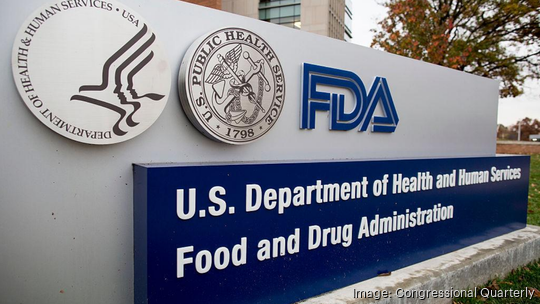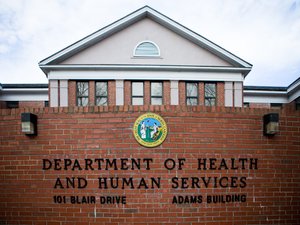
A small biotech in Chapel Hill is trying to tackle one of the largest health challenges in the U.S. — the fentanyl crisis.
Cessation Therapeutics has received authorization from the U.S. Food and Drug Administration to advance its lead program, a monoclonal antibody, into a Phase 1 trial. The biotech aims to deliver the first FDA-approved product for the prevention of fentanyl-related overdose, and this initial clinical study is a step in that direction.
In 2021, synthetic opioids other than methadone, primarily fentanyl, contributed to nearly 71,000 overdose deaths, according to data from the National Institute on Drug Abuse. Existing medicines used to address the problem include Narcan, a nasal spray designed to rapidly reverse an overdose from opioids. However, the product has its limitations. Fentanyl is so potent that a person can overdose in a matter of minutes, leaving a short window in which Narcan can be administered, said Cessation Chief Scientific Officer Andy Barrett.
Cessation is developing a monoclonal antibody that prevents high-risk individuals from experiencing the toxic effects of fentanyl. This includes people who may have overdosed in the past or recently left a detox program.
The company is developing its lead program, referred to as CSX-1004, as an IV infusion that protects individuals for at least 30 days. The treatment works by grabbing and neutralizing fentanyl molecules that enter the bloodstream, preventing them from reaching an individual's brain.
"We're characterizing this as a paradigm shift," Barrett said.
Barrett joined the company about a year ago, along with CEO Tracy Woody, another Triangle-based pharmaceutical executive. Barrett and Woody previously worked together and were interested in again collaborating to lead a biotech in the Research Triangle Park area.
They came to Cessation to try to develop solutions to the fentanyl crisis and addiction more broadly through some of the company's other assets. Cessation was formed in 2019 around assets licensed from Scripps Research, a biomedical research organization based in California.
Cessation's first few years have revolved around completing the preclinical work necessary to move its lead program into its first clinical trial, which is set to begin in August. During this Phase 1 study, which could take between six to nine months, the company will evaluate the safety of its monoclonal antibody in healthy individuals.
Following this study, Cessation will work with the FDA to identify if a potential accelerated approval process is possible, given the unmet need the company is trying to address. Under these circumstances, Cessation could follow up this initial study with a Phase 2 trial before seeking FDA approval and getting the treatment on the market by the end of 2025, Woody said.
Cessation's early work has been supported by a grant from the National Institute on Drug Abuse, which is part of the National Institutes of Health, worth more than $7 million. Cessation has also raised an additional $8 million from private sources, including investors Altamont Pharmaceutical Holdings and JDH Investment Management, plus family offices.
Cessation is planning more fundraising activity as it moves its first program into the clinic, Woody said.
"We think going from preclinical to clinical-stage will give us some traction to raise additional capital to move this asset through and others," Woody said.
As its advances, Cessation wants to build out its team, which includes three people in the Triangle and two in California. The goal is reach 13 employees, Woody said, which will mostly include clinical development and regulatory staff, in addition to people in more business-focused roles. The company is looking for office space in the Triangle to base its operations.


